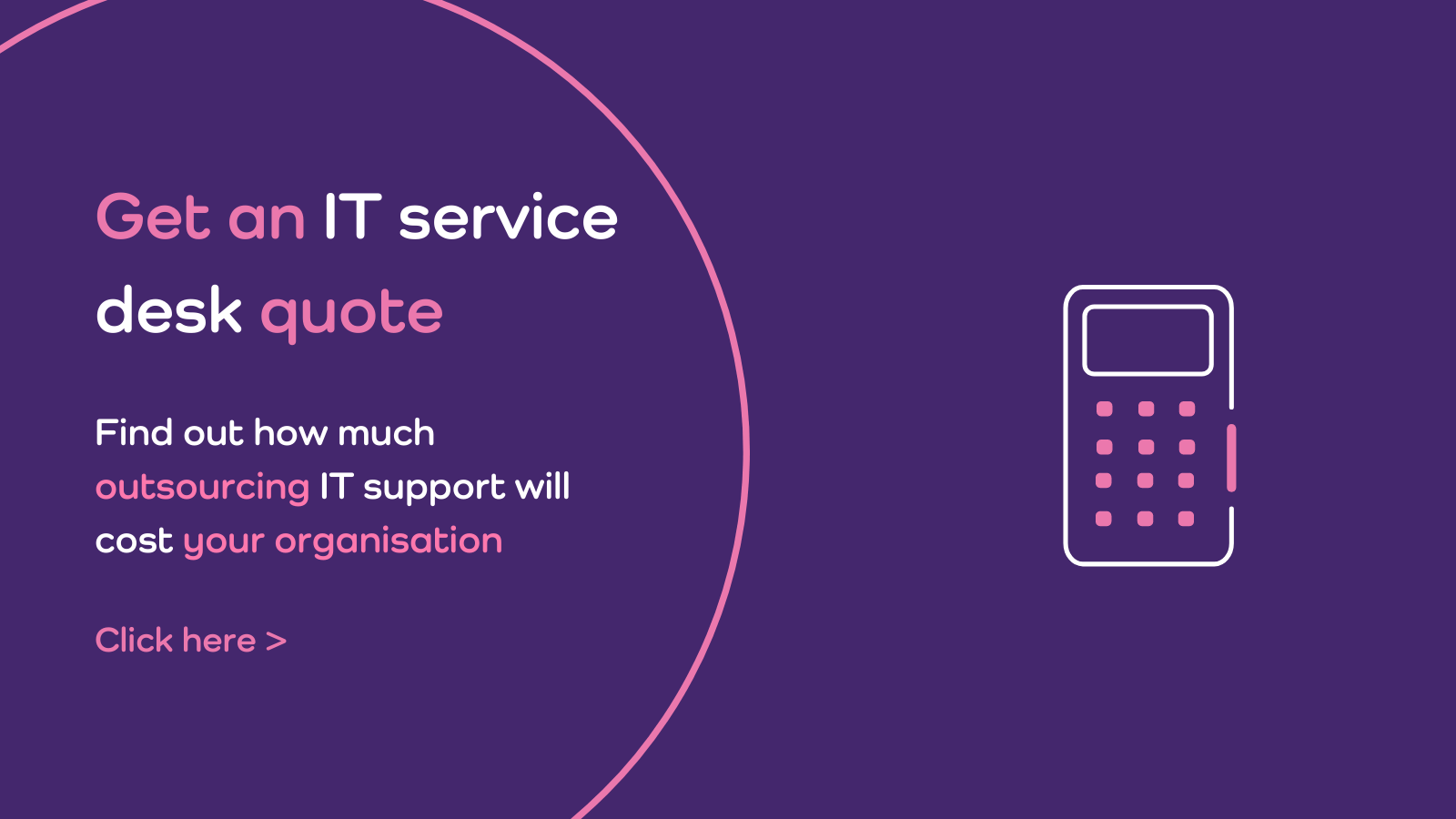For many UK SMBs with staff and clients in the UK, staying open 24/7 isn’t the norm. However, for companies with clients and teams around the world, or those that operate in ‘always up’ sectors like hospitality, healthcare and e-commerce, end user support (EUS) needs to be accessible 24x7x365.
If your organisation is seeing increasing demand for out of hours IT support, transitioning from weekday operating hours to 24x7x365 IT support is a big step to take. Before you take this step, there are a few questions worth asking:
- Do we need this?
- Can we afford this?
- What happens if we don’t provide this support?
As with most business decisions, needs and opportunity costs must be balanced. If your company has staff, contractors and clients that need access to your systems around the clock, and the number of unanswered overnight support tickets is growing, then this is a situation that needs addressing.
Find out how much outsourcing IT support 24x7x365 could cost your organisation here >
Failure to implement 24x7x365 support could reduce team productivity for those who work flexible hours, employees who work overseas as well as those working shift patterns in this country whilst looking after clients abroad. Without a 24x7x365 service desk, clients could feel neglected or be unable to use products or services purchased from your organisation. Losing one or two business days on a project could impact customer satisfaction, even causing an unhappy client to go elsewhere. Unsupported staff could do the same.
When IT problems aren’t addressed quickly, downtime reduces the effectiveness of staff everywhere, especially when they can’t access any assistance from head office and senior managers.
24x7x365 IT support options
There are several ways 24x7x365 IT support can be achieved.
#1: Internal team
Employing a team, either abroad or in head office, to work shifts is the most costly option. Taking this approach will involve a team of at least 2 to 3 extra staff, to ensure you can meet demand and adhere to the EU working time directive.
Night shift staff need to be clear on the hours they’re going to work when you start recruiting. Make sure they’re given extra support, training and processes to be followed in the event of an emergency. During the recruitment process, make sure staff working night shifts have the support they need at home to work unsociable hours and sleep during the day. Otherwise, it might be difficult to ensure your team want to keep working those hours.
If you’ve got staff working alone at night in the office, it’s worth checking out the lone workers health and safety guidelines from the Health and Safety Executive (HSE).
#2: Overseas outsourcing
Another way to provide 24/724x7x365 IT support is to work with one or more outsource companies, depending on the timezones of your staff and clients. Overseas first and second-line IT support is cheaper than employing a team at home. In the Philippines, India or Indonesia, there are numerous firms that supply IT services tailored around the technical needs of small and medium companies.
When working with an outsource partner abroad, make sure they’re already experienced at providing services to companies similar to your own. Ask for references and see if you can test them on a trial basis. If you are happy to go ahead, their team will need scripts and processes to follow from your IT team, and relevant access to your software, hardware and other services to provide the right level of support.
Although this method is more cost effective, the downside is that support can be limited. If anything is more complex than the training and scripts provided, it will require your UK-based IT team to handle the problem the next day.
Culture is also a consideration when outsourcing to offshore providers. There can be cultural differences between the way your users (employees and clients) communicate and the offshore service desk analysts. This can result in misunderstands and poor customer satisfaction.
Understanding your company culture is something else that offshore providers may struggle with. This can affect the way tickets are handled with analysts not understanding how to prioritises tickets according to your organisation’s business objectives and operational model. This is why it’s often best to only use offshore providers for 1st line support.
#3: Trusted IT support
Instead of hiring your own night shift team, or outsourcing this function to an overseas third-party provider, work with a trusted IT partner here in the UK. Out-of-hours or 24/7 support will cost a little more than outsourcing your IT service desk during regular office hours, with the advantage that they are in the best position to really embed themselves in your organisation and understand your key drivers and objectives.
Working with a team in the UK maintains clear lines of communication and service standards. It is easier to provide that team with new information, training and changes they need to implement in the same timezone. This way, you can be confident your 24x7x365 IT support team is prepared to look after clients and staff around the clock.
Sleep confidently, knowing that if your systems go down the other side of the world, an IT team here can fix the problem quickly, keeping downtime to a minimum. When you are working with a trusted IT partner, you don’t need to let technical worries keep you up at night.







